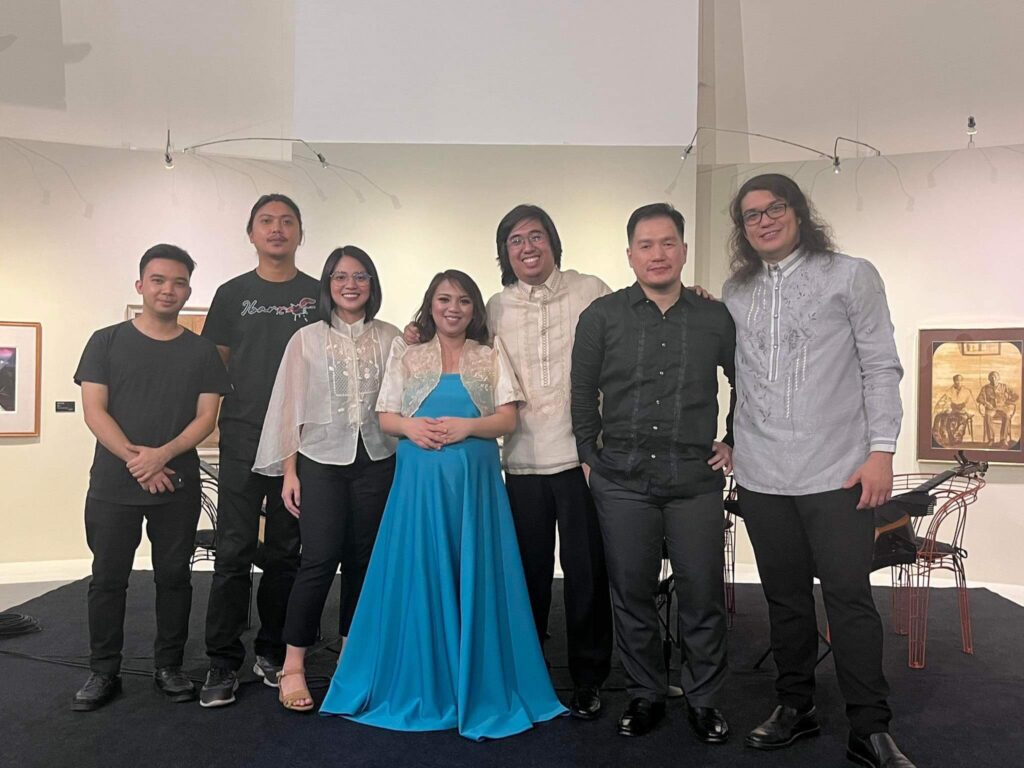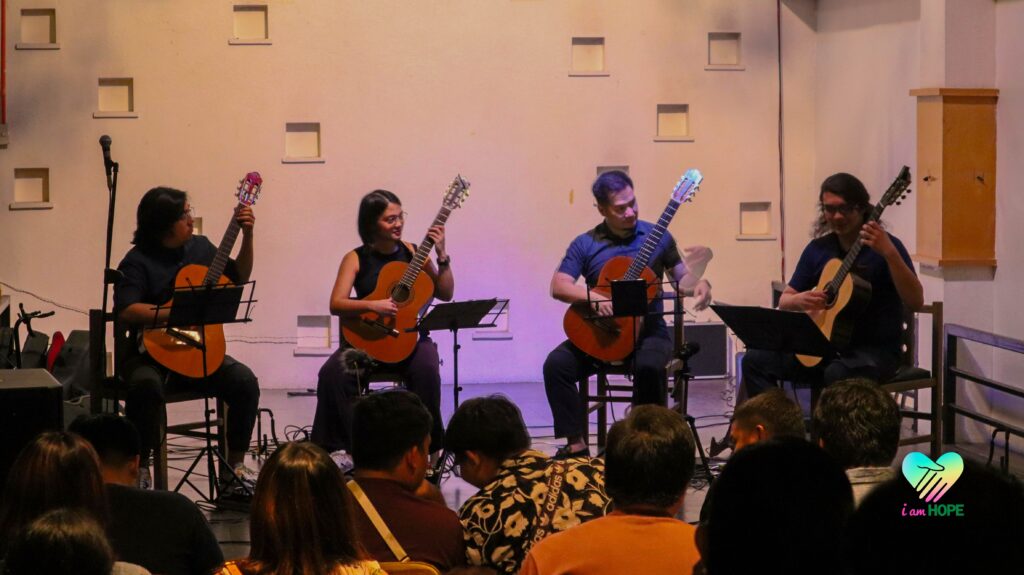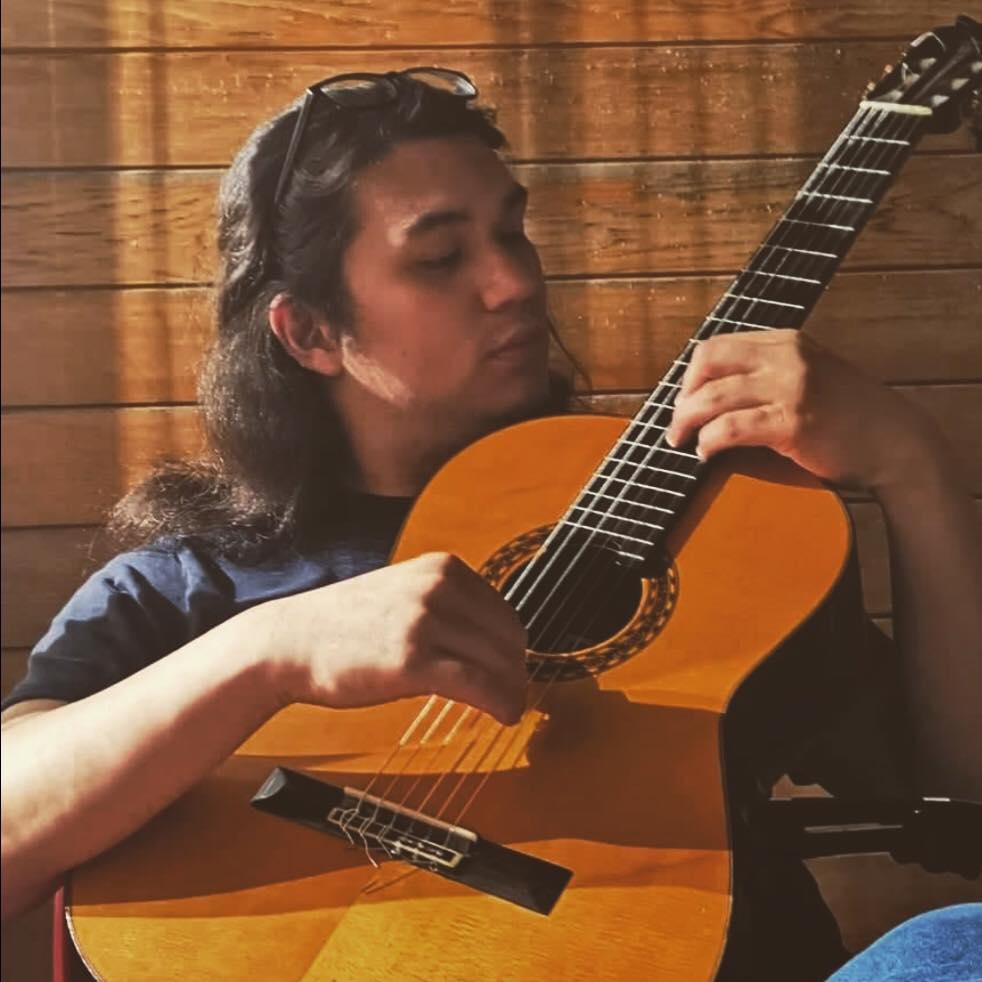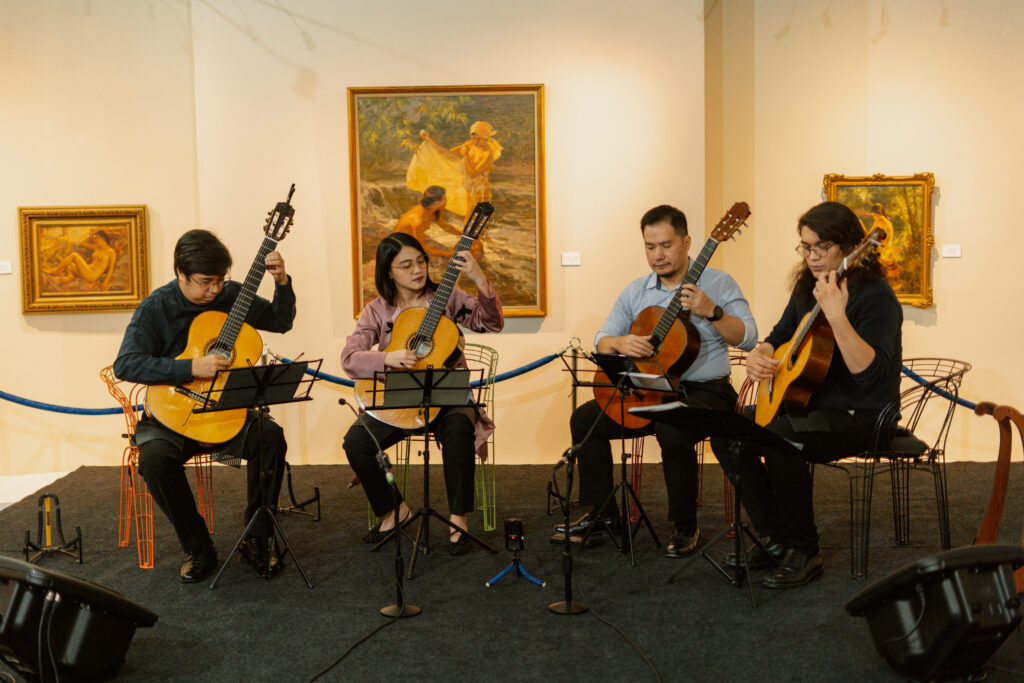The Yuletide season ends this 6 January, and 2024 is right here with us, so now is the time to reflect on a fruitful yet busy 2023.
As I sit down with a cold beer in my hand, I reminisce the highs and lows that our group experienced. What a year it’s been for the PIMA Guitar Quartet! Some tough times concerning funding productions, marketing and time pressure are common problems for newly assembled teams. But they were worth our efforts and resources as we intended to take off and perform before audiences. Of our highs, we were so fortunate to have videographer Roneil Santos and Sound Tech’s Mon Garcia to help us with productions. Thanks to them always.
What began as a collaboration between various musicians in 2022 at the Yuchengco Museum became something more in 2023. Patrick Roxas, Iqui Vinculado, Monching Carpio and I had a vision of a guitar quartet that could work towards being “the group” when Filipinos think of the “classical” guitar. Coming together at a professional stage of our lives was a breath of fresh air. Our teamwork led to a new creative venture separate from our respective careers. Our 10 concerts and two corporate events made for a great first year and an inspiration to move forward creatively this 2024.
Continuous concerts at the charming Yuchengco Museum (Makati City) while discovering a young upcoming gallery named the Gravity Art Space (Quezon City) helped us attract concert goers on different sides of the Metro.
Music plus art galleries gave the audience access to visual and performing arts in one setting. Our partner NGOs have also been great to work with. A triple win for the venues, performers and NGOs. The more people we attract, the better.



There are guitar enthusiasts across all professions such as doctors, lawyers, NGO workers and business people. Somehow, we were able to grow our niche audience, thanks to these collaborations. We plan to continue these mutually beneficial projects. Thank you to both the Yuchengco Museum and The Gravity Art Space teams for sharing your beautiful galleries with PIMAGQ! Thank you, as well, to Ms. Tosh Jacob-Soliven for the guidance/support through early concerts!
Halfway through my beer, I begin thinking about what may limit us, moving forward. As much as we take pride in being trained classical guitarists, I think the label of being “classical” will be our Achilles heel.
Why? Because labels may lead to categorizing. Which isn’t necessarily negative. But, to crossover when desired/needed is a big advantage. As striking as classical music is, the Filipino music scene is just too diverse (and continues to diversify) for our group to settle in one “zone.” There are no illusions of becoming “pop” artists. That’s different. But the label may hinder possibilities. This is where I believe that PIMA will need to establish its middle ground. Keeping our own sound as we venture across genres.
What made me realize this? Simple. Aside from the unique skill set of each PIMA member, the three classical singers who joined us on separate occasions helped us grow. Baritone Emmanuel dela Rosa’s style put us to the test when we made guitar accompaniments for his songs (classical to standards). We needed to sound “thicker” in order to accommodate his low warm voice while maintaining our “mark” on the song.
Sopranos Bianca Lopez and Stefanie Quintin both perform at very high levels and have unique styles which puts us in positions to dig deeper in our arsenal of skills when accompanying them. It’s amazing how the same song can be recreated through a singer’s style. PIMA adapted and tried to make them sound as good as possible while finding our mark in each song. Classically trained, we all were, but flexible across genres. A kundiman, an aria, a standard, a Broadway song with a pinch of classical guitar, opera and our personal characters. Grateful to have learned from these three.
Looking for a group’s signature sound is a must. Working with other talents reaffirms the concept of non-stop learning. Yes, there may be an advantage in being classically trained, but the application of that training across genres is what PIMA must do in diversifying. Results? Variety, innovation and most importantly, growth of the niche. PIMA is ready to produce concerts of all types, such as IMA presents the Anime Special, PIMA does the Movies, PIMA and the Filipino Music Timeline, PIMA Broadway Night and PIMA with Dance and Theatre. The list goes on.
Creative risk-taking while maintaining an open mind through the process is a great step forward. New material, new partners and good marketing can hopefully help in growing our audience.
So how do we label the PIMA Guitar Quartet? Acoustic? Hmmm… Perhaps classical? Not totally. Crossover? Possibly, as labels will be labels. Whatever it may be, PIMAGQ enters 2024 with a mission to show our audience the “classical” guitar’s sound across various genres. PIMA aims to be PIMA and find its middle ground.
Finally, amidst all the challenges and triumphs in our founding year, the goal of becoming “the guitar quartet” within the diverse metro scene of musicians will motivate us to become better, more creative, more hardworking and, most importantly, flexible. Indeed, we are looking forward to what 2024 will bring.
